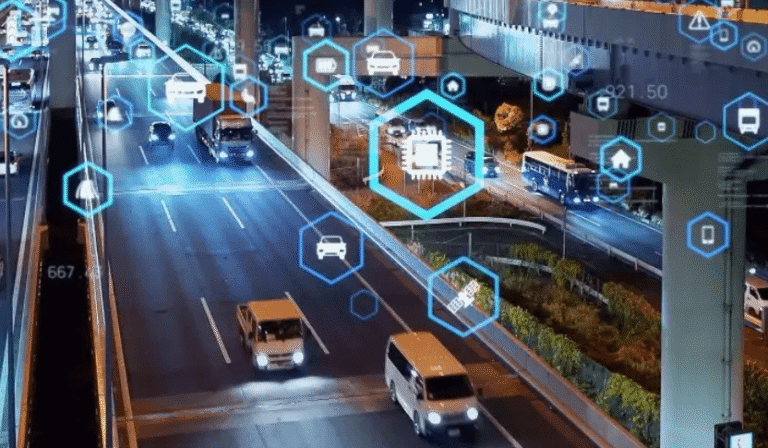Google I/O 2025: Unveiling Android XR and Gemini AI Innovations
Google I/O, the tech giant’s annual developer conference, is renowned for setting the stage for the next wave of technological advancements. In 2025, Google I/O promises to be more groundbreaking than ever, with the unveiling of two game-changing innovations: Android XR and Gemini AI. These innovations are expected to reshape the future of mobile experiences, artificial intelligence, and the broader tech ecosystem. Let’s dive into what these revolutionary technologies mean for developers, consumers, and the future of the digital world.
What is Android XR?
Android XR represents the next evolutionary step for Google’s mobile operating system. Building upon the foundation of Android, Android XR brings a new level of immersive experiences, merging augmented reality (AR) and virtual reality (VR) in ways never seen before. The ‘XR’ in Android XR stands for Extended Reality, a term that encompasses both AR and VR technologies.
Immersive User Interface: Android XR introduces a radically new user interface that integrates AR and VR into everyday tasks. Imagine navigating through your phone’s interface in a 3D space, interacting with digital objects overlaid onto the real world, or even creating virtual workspaces where multiple apps coexist in a seamless, immersive environment.
Deep Integration with Google Services: One of the standout features of Android XR is its integration with Google’s existing ecosystem, including Google Maps, Google Assistant, and Google Lens. For example, users could point their device at an unfamiliar building, and Android XR would overlay contextual information, such as reviews, historical data, or nearby points of interest in real-time.
AR-First App Development: Android XR will encourage developers to create apps that prioritize augmented reality. With built-in tools for spatial computing and support for WebXR (a web-based API for AR/VR), app creators will be able to easily integrate immersive experiences into their apps without the need for dedicated AR hardware. Whether it’s gaming, education, retail, or entertainment, Android XR will foster the next generation of immersive mobile apps.
Hardware Compatibility: Android XR will be designed to work seamlessly with existing Android devices as well as new AR/VR hardware that may debut alongside the OS. Google will likely release a new set of AR glasses or a headset specifically optimized for Android XR, taking immersive experiences to a whole new level of convenience and portability.
Privacy and Security: With the increased use of immersive technologies, privacy and security become even more critical. Android XR will come equipped with robust privacy controls, allowing users to manage how their data is used, especially in AR environments where sensitive data could be inadvertently exposed. Google has assured that it will prioritize data security with end-to-end encryption for all XR experiences.
See also: http://Why You Should Attend TechFlock 2025: A Hub for Innovation
Gemini AI: A Leap Toward General AI
Alongside Android XR, Google will also showcase its most ambitious AI development to date: Gemini AI. This AI system is designed to represent a quantum leap forward in the evolution of artificial intelligence. Gemini AI isn’t just another iteration of machine learning or deep learning; it’s the first step toward Artificial General Intelligence (AGI) — an AI system capable of performing any intellectual task that a human can do. Let’s explore how Gemini AI is poised to revolutionize the tech world:
Advanced Natural Language Processing: Gemini AI will be a massive upgrade over Google’s existing language models like BERT and LaMDA. It will have an unprecedented ability to understand, generate, and even manipulate human language in a more nuanced, context-aware way. Whether it’s answering complex queries, generating creative content, or engaging in deep conversations, Gemini AI will set a new standard for conversational AI.
Cognitive Flexibility: One of the major breakthroughs of Gemini AI is its cognitive flexibility. It will be able to switch seamlessly between various types of tasks — from creative work to analytical problem-solving, and even physical tasks in robotics. Gemini AI could, for example, assist in creative industries by writing scripts, generate music, or even design complex structures, all with a deep understanding of context and emotion.
Cross-Domain Knowledge Integration: Unlike current AI models, which are usually specialized for specific domains, Gemini AI will be able to integrate knowledge across multiple disciplines. It will have access to vast amounts of information, from medical research to engineering blueprints, enabling it to offer solutions and insights that are both innovative and cross-disciplinary. This will empower professionals from diverse fields to solve problems in ways they previously couldn’t.
Enhanced Personalization: Gemini AI will not only excel in general intelligence but also in personalization. It will be able to learn from users’ habits, preferences, and behaviors, offering recommendations that feel more intuitive and human-like. This will be particularly beneficial in areas like healthcare, where AI can provide personalized treatment recommendations based on a person’s medical history, lifestyle, and genetic information.
Ethics and Transparency: As with all AI, ethical considerations are paramount. Google has committed to ensuring that Gemini AI operates with transparency and fairness, avoiding bias and respecting privacy. The system will have built-in ethical safeguards to ensure it operates in alignment with societal values and legal frameworks, especially in sensitive areas like healthcare and law enforcement.
Collaboration with Developers: Gemini AI will come with a set of developer tools that enable integration into a wide range of applications. Whether you’re building a chatbot, an autonomous vehicle, or an AI-driven healthcare system, Gemini AI will be an essential component of future AI-powered solutions.
The Impact on Developers and Industries
The introduction of Android XR and Gemini AI will open up new possibilities for developers and businesses alike. For developers, these innovations will provide new platforms, tools, and APIs to work with. They will need to adapt to new development practices, especially as Android XR shifts the focus to immersive apps and spatial computing.
Industries like gaming, education, healthcare, entertainment, and retail will see transformative changes:
Gaming: Android XR will lead to the creation of next-generation games with immersive AR and VR experiences that were previously only possible on dedicated platforms.
Education: Imagine attending a virtual classroom where you can interact with 3D models, explore historical sites in AR, or collaborate with fellow students in a virtual space. This will redefine the educational experience.
Healthcare: Gemini AI’s ability to analyze complex medical data could make healthcare diagnostics more accurate and personalized. Android XR could also bring telemedicine to life, allowing patients to virtually interact with healthcare professionals in a more human-like, immersive way.
Conclusion
Google I/O 2025 is set to be a landmark event in the tech world. The unveiling of Android XR and Gemini AI will usher in a new era of mobile experiences and artificial intelligence. With Android XR, users will step into an immersive world where the physical and digital realms converge, while Gemini AI will push the boundaries of what AI can achieve, potentially bringing us closer to true Artificial General Intelligence.
For developers and businesses, these innovations represent a massive opportunity to reshape industries, create new products, and push the envelope of what’s possible with technology. As we eagerly await the official launch of these technologies, it’s clear that Google’s vision for the future of mobile, AI, and extended reality will have lasting impacts on how we interact with the digital world.






